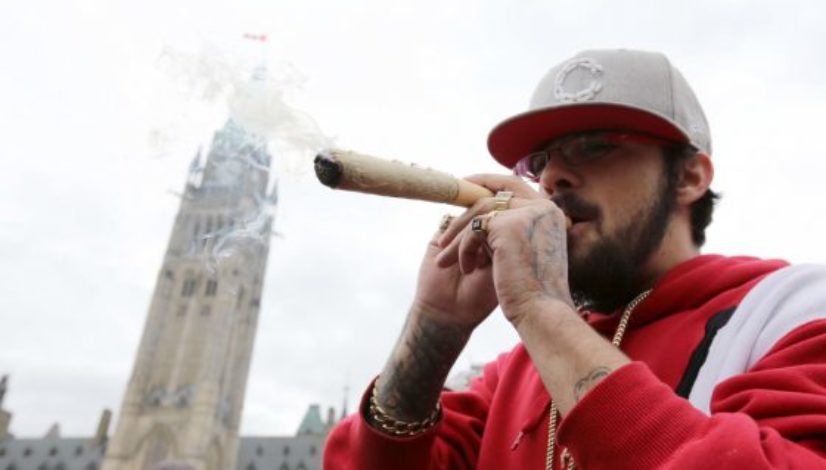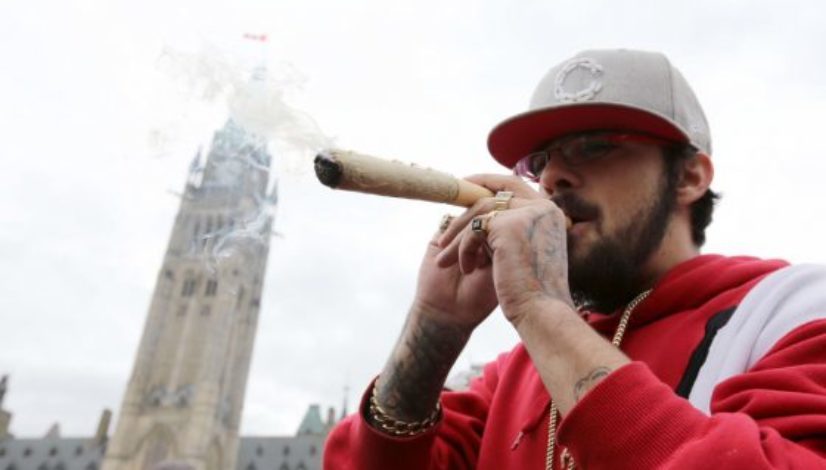Canada’s bill to legalize cannabis faces opposition

Published: Nov 21, 2017, 1:28 pm • Updated: Nov 21, 2017, 1:36 pm
By Polly Washburn, The Cannabist Staff
The Canadian House of Commons held a spirited debate over the legalization of cannabis Tuesday as the Liberal government presented a second reading of its Bill C-45.
Marco Mendicino, Justice and Attorney General, presented the government’s report and pressed for the passage of the legislation. He spoke of the “thousands of Canadians” who have been charged, convicted, and going to jail for “small amounts of cannabis.”
“Canada is more than ready for a new approach,” said Mendicino.
Over the course of three hours, Conservative Party members of Parliament questioned Liberal Party representatives on the advisability of legalizing cannabis.
Conservative MP Marilyn Gladu, the Opposition Critic for Health, has proposed an amendment to prohibit individuals from growing cannabis at home. The government report rejected this motion. The legislation allows adults to grow up to four plants at home. Provinces could impose more restrictive grow limits.
At the other end of the spectrum, Green party leader Elizabeth May has proposed removing the limits on distribution of cannabis by individuals. The current wording prohibits adults from giving more than the equivalent of 30 grams of dried cannabis (in whatever form), or a flowering or budding plant, to another adult or minor. For minors, the distribution limit is five grams.
Pierre Paul-Hus, a Conservative from Quebec, argued that the possession limit for young people be zero grams and 21 should be the minimum age to consume, pointing to Colorado as an example.
A “friendly amendment” from the Health committee expands sales to include edibles and concentrates, within one year of the bill’s passage. Those products aren’t included in the current wording of the legislation.
Treasury Board Secretary Joyce Murray also spoke in favor of the bill. She rejected the claim that legalization would increase youth use. She said the law would put into place strict controls and penalties to protect young people. She also cited restrictions on advertising, labeling and packaging.
Murray pointed to a recent study showing a significant drop in opioid-related deaths in states that have legalized cannabis. Cannabis is a “safer, more effective” than opioids, she said.
Don Davies, an NDP member from British Columbia, called out Liberals for using the opioid crisis as part of their argument to legalize cannabis, but not declaring a health emergency, as the United States recently has. Davies also asked if pardons would be available for the thousands of Canadians who currently have arrest records for marijuana possession.
Another Conservative, Peter Kent of Ontario, referred to the bill as a “wacky campaign promise” and a “misguided crusade.” The Liberal government is “determined to force this bill” on the police and people of Canadian, he said, “whatever the cost to Canadian society.”
Stephanie Kusie, a Conservative from Alberta, called for the House to reject C-45. She noted that the Canadian Association of Chief of Police have asked government to extend implementation date past July 1, 2018.
Related stories
- Cannabis firms Canopy Growth, Organa and Green House team up on a joint venture in Canada
- Canadian provinces bargaining with feds over how to divvy cannabis tax revenue
- From working against legalization to leading a cannabis advocacy non-profit
- Meet Canada’s only certified kosher cannabis producer
- Will Canada be able to fully legalize and regulate marijuana by July?
Kusie reported that there is no reliable roadside measurement for driving under the influence of marijuana. She cited a recent study, saying Colorado experienced “drastic increases in deaths” caused by driving under the influence of cannabis (the authors of the study did not make a causal relationship). She also claimed that places that have legalized cannabis have seen increases in homelessness and crime, and that, “Smoking marijuana doubles the risk of developing schizophrenia.”
Kusie also raised the specter that passing C-45 “may cause disputes” with its southern neighbor, citing recent incidents of individuals who have been denied entry to the United States after admitting to American border officials that they had used marijuana. She added that by legalizing cannabis, Canada would be in violation of three United Nations treaties.
Kelly McCauley, Conservative from Alberta, criticized the “nonsensical, arbitrary deadline” of July 1. He conjured up the image of Prime Minister Justin Trudeau, the head of the Liberal Party, joining a Canadian Day party on July 1, 2018, “pulling up his pants to show his marijuana socks” and sparking the “first ceremonial doob on Parliament Hill.”
David Lametti, Secretary of Innovation, Science an Economic Development, assured his fellow legislators that provinces and territories would be able to set limits as they saw fit, beyond those regulated in the act.
Provinces have already begun to dive into these questions, with Quebec announcing it will block home grows, and New Brunswick saying homeowners must lock up their cannabis. Quebec has also asked government to delay the start of sales to 2019.
This is the second reading of the bill. There will be a third reading and debate within the next two days, thanks to a measure passed in the first part of Tuesday’s session, limiting the amount of time for debate. The House will likely vote on the bill on Friday or Monday, and then it will pass to the Senate.
The Liberal Party has 181 seats in the House, so if all members support the bill, it will be able to withstand complete opposition from The Conservative Party, which has 96 seats; the New Democratic Party, which has 44 seats; the Bloc Québécois with its 10 seats; and the two independents and sole Green Party member.
The Minister of Health is scheduled to make an announcement about the regulation of cannabis Tuesday afternoon.
Topics: Canada, legalization, legislation, regulations, united nations  Polly Washburn
Polly Washburn
Polly joined The Cannabist in December 2016 as a digital producer. She has been creating print, web and video content for a couple of decades. She returned to her home town of Denver in 2012 after living in eleven other cities in four countries, and…




